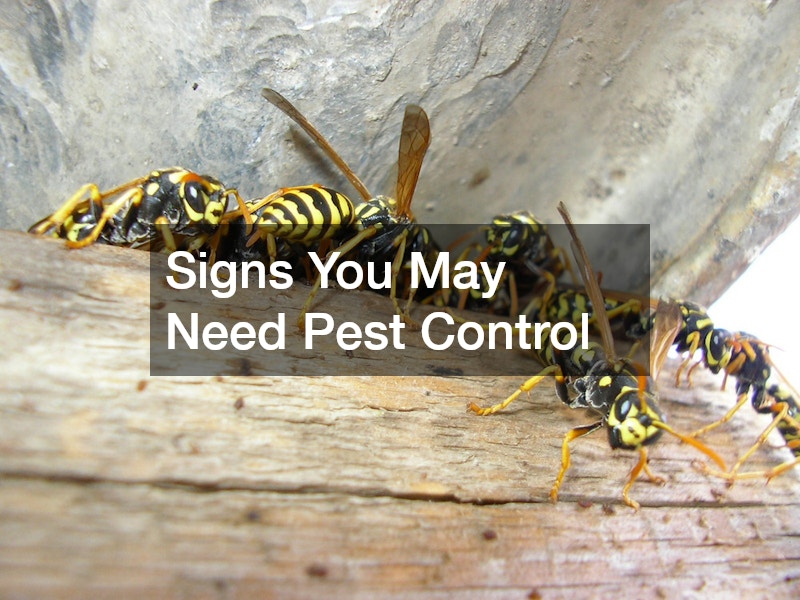Pests are more than just an occasional nuisance. From ants crawling in the kitchen to rodents nesting in hidden corners, they can affect your living environment, damage property, and even put your health at risk. Understanding the importance of pest control and knowing how to prevent infestations can help you maintain a safe, clean, and comfortable home.
Why Pest Control Matters
Pests enter homes seeking food, water, and shelter. Once inside, they can multiply quickly, making infestations difficult to manage without professional help.
While some pests seem harmless at first glance, they often carry bacteria or allergens that can cause health problems. Others, like termites or carpenter ants, can quietly damage the structural integrity of your home.
By taking pest control seriously, you’re not only protecting your household from discomfort but also safeguarding your property and well-being.
Common Household Pests
Every region has its own set of common household pests, but some invaders are frequently seen across the United States. Understanding their behavior helps with prevention:
-
Ants: These insects are often drawn to crumbs, spills, and pet food. They usually build colonies nearby, and once a trail is established, ants keep returning until food sources are eliminated.
-
Cockroaches: Known for their resilience, cockroaches can thrive in warm, damp spaces. They are linked to allergies and asthma, making them a serious concern in homes with children or older adults.
-
Rodents: Mice and rats are skilled at squeezing through tiny openings. Once inside, they chew wires, contaminate food, and spread diseases through droppings.
-
Termites: Silent destroyers, termites can go unnoticed for months or years, causing extensive damage to wooden structures.
-
Bed Bugs: These pests feed on blood, typically at night, and can cause itching and discomfort. They spread quickly in luggage, furniture, and bedding.
Preventative Measures for Homeowners
The first step in pest control is prevention. By making your home less attractive to pests, you can reduce the chances of an infestation:
-
Seal Entry Points: Inspect windows, doors, and foundations for cracks or gaps. Even the smallest openings can serve as entryways for ants, spiders, and rodents.
-
Maintain Cleanliness: Regularly wipe down surfaces, vacuum floors, and store food in sealed containers. Proper garbage disposal also helps limit attractants.
-
Reduce Moisture: Many pests, such as cockroaches and termites, thrive in damp conditions. Fix leaky pipes, ensure proper drainage, and use dehumidifiers in basements or crawl spaces.
-
Yard Maintenance: Keep shrubs, trees, and firewood away from the home’s exterior. Overgrown vegetation and piles of wood provide shelter for pests.
-
Proper Storage: Keep attics, basements, and garages organized. Cardboard boxes, clutter, and piles of clothing often become hiding places for rodents and insects.
The Role of Professional Pest Control
While preventative measures are important, infestations sometimes occur despite best efforts. In such cases, working with a professional pest control company ensures the problem is handled effectively. Professionals use targeted strategies based on the type of pest and level of infestation. They have access to tools, treatments, and knowledge that go beyond DIY methods.
Professional pest control services also focus on long-term solutions. Rather than just addressing the pests you can see, they identify hidden problems and implement strategies to keep infestations from recurring.
Eco-Friendly Approaches to Pest Management
Modern pest control isn’t only about eliminating pests—it’s also about protecting the environment and the health of your family. Many companies today use integrated pest management (IPM) methods, which combine preventative practices with eco-friendly treatments. IPM emphasizes monitoring, targeted treatment, and minimal use of chemicals.
This approach not only reduces the risks associated with traditional pesticides but also encourages natural predators and healthier ecosystems around your home.
Health Benefits of Pest Control
One of the most important reasons to prioritize pest control is the health and safety of your household. Pests carry bacteria, viruses, and parasites that can contaminate food and surfaces. Cockroaches, for example, are linked to increased asthma symptoms, while rodents can spread salmonella and hantavirus.
By keeping pests at bay, you reduce the likelihood of exposure to harmful pathogens and allergens, creating a healthier living environment.
Signs You May Need Pest Control
Sometimes it’s obvious you have an infestation, but other times the signs are subtle. Keep an eye out for the following indicators:
-
Droppings or urine stains
-
Chewed wires, food packages, or furniture
-
Unexplained holes in walls, floors, or wood
-
Unpleasant odors, particularly musty or oily smells
-
Small bites on the skin or rust-colored stains on bedding
-
Increased sightings of insects or rodents, especially at night
Addressing these signs early can prevent small problems from becoming large infestations.
Long-Term Protection
Pest control is not a one-time task. It requires continuous effort and vigilance. Seasonal changes, new construction, and even changes in weather can affect pest behavior. Scheduling regular inspections and treatments helps maintain long-term protection for your home.
Homeowners who combine preventative measures with professional support experience fewer infestations and greater peace of mind.
Pest control is an essential part of maintaining a safe, healthy, and comfortable living space. From preventing property damage to protecting your family’s health, the benefits of proactive pest management cannot be overstated. While small steps like cleaning and sealing entry points can help, a trusted professional offers the expertise needed to handle persistent problems and ensure long-lasting results.
By staying vigilant and working with the right experts, you can protect your home from unwanted invaders and enjoy the peace of mind that comes with a pest-free environment.

